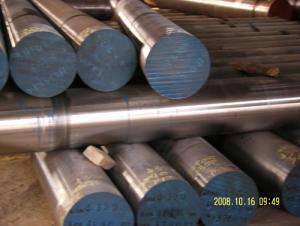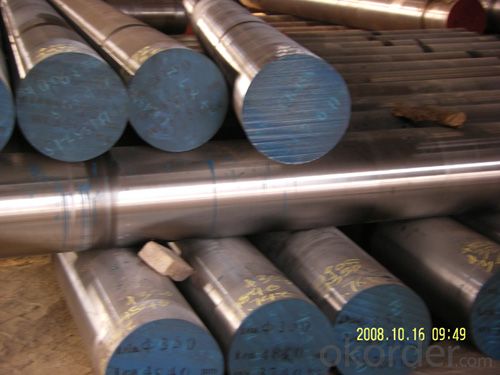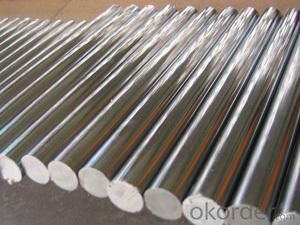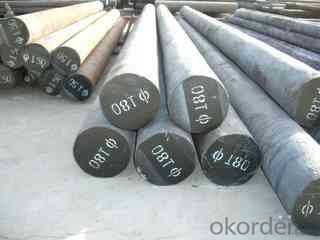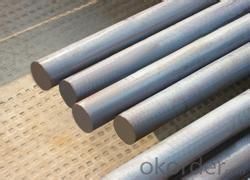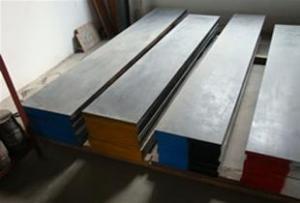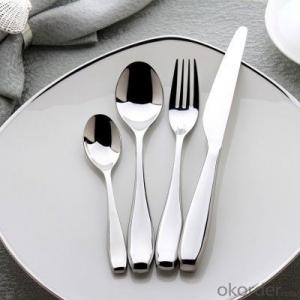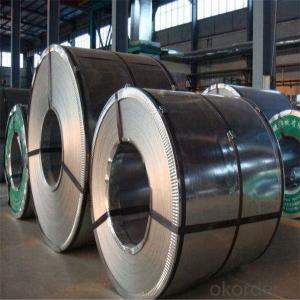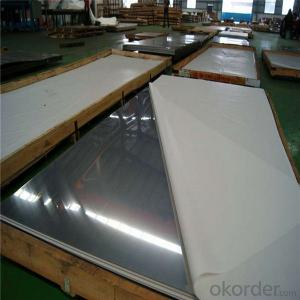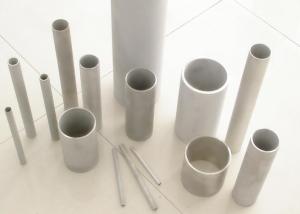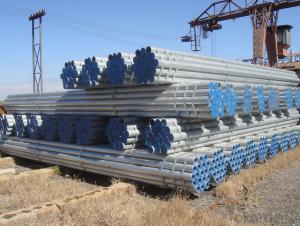SUS 316L Stainless High Quality Tool Steel
- Loading Port:
- China main port
- Payment Terms:
- TT or LC
- Min Order Qty:
- 25 m.t.
- Supply Capability:
- 10000 m.t./month
OKorder Service Pledge
OKorder Financial Service
You Might Also Like
Product Description:
OKorder is offering Tool Steel at great prices with worldwide shipping. Our supplier is a world-class manufacturer of steel, with our products utilized the world over. OKorder annually supplies products to European, North American and Asian markets. We provide quotations within 24 hours of receiving an inquiry and guarantee competitive prices.
Product Applications:
High Quality Bearing steel is used for manufacturing ball, roller bearing steel and rings. Bearing in work is under great pressure and friction, so have high demands bearing steel and hardness and resistance, and high elastic limit.
Bearing steels are used for ball and roller bearing applications and are comprised of low carbon steels and high carbon through harden able steel.
For example, bearing ring, steel rolling mill, machinery, 100Cr6 bearing steel ball is widely used in high-speed and low-noise bearing, bicycle, motorcycle, automobile, bags electronically.
Product Advantages:
OKorder's Tool Steel are durable, strong, and resist corrosion.
Main Product Features:
· Premium quality
· Prompt delivery & seaworthy packing (30 days after receiving deposit)
· Corrosion resistance
· Can be recycled and reused
· Mill test certification
· Professional Service
· Competitive pricing
Product Specifications:
Grade | bearing steel EN-31 |
Dimensions | Diameter: 20-280mm Length: 2000-5800mm |
Shape | Round Bar |
Type | High chromium bearing steel |
HBS | <220< span=""> |
Standard | AISI |
Technique | Hot Rolled |
Chemical Composition of High Quality Bearing Steel
C | S | P | Si | Mn |
0.95-1.05 | ≤0.025 | ≤0.025 | 0.15-0.35 | 0.25-0.45 |
Cr | Mo | Ni | Cu | Ni+Cu |
1.40-1.65 | ≤0.10 | ≤0.30 | ≤0.25 | ≤0.50 |
FAQ:
Q1: Why buy Materials & Equipment from OKorder.com?
A1: All products offered byOKorder.com are carefully selected from China's most reliable manufacturing enterprises. Through its ISO certifications, OKorder.com adheres to the highest standards and a commitment to supply chain safety and customer satisfaction.
Q2: How do we guarantee the quality of our products?
A2: We have established an advanced quality management system which conducts strict quality tests at every step, from raw materials to the final product. At the same time, we provide extensive follow-up service assurances as required.
Q3: How soon can we receive the product after purchase?
A3: Within three days of placing an order, we will begin production. The specific shipping date is dependent upon international and government factors, but is typically 7 to 10 workdays.
Images:
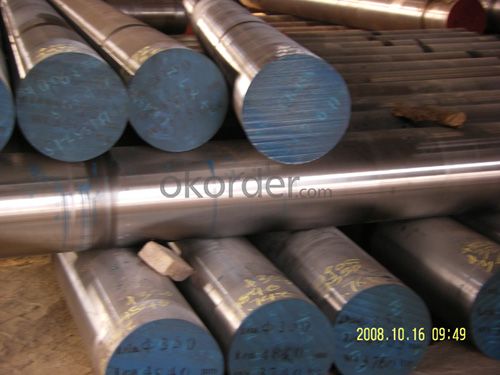
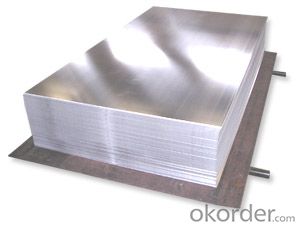
- Q: How are steel round bars used in the construction of dams and reservoirs?
- Due to their strength, durability, and versatility, steel round bars are essential components in the construction of dams and reservoirs. These bars, typically made of reinforced steel, play a vital role in reinforcing the concrete structures that make up dams and reservoirs. In dam construction, steel round bars are primarily used as reinforcement in concrete walls and foundations. Strategically placed within the concrete, these bars provide additional tensile strength, preventing cracking and ensuring the structural integrity of the dam. By withstanding the enormous pressure exerted by the water, the reinforcement helps prevent leaks or potential failures. Furthermore, steel round bars are utilized to strengthen the spillway gates and control structures of dams and reservoirs. These gates regulate the flow of water and prevent overflow during heavy rains or floods. By reinforcing these critical areas with steel round bars, engineers guarantee that the gates can endure the forces exerted by the flowing water, maintaining their functionality and preventing potential damage. In addition, steel round bars are used in the construction of penstocks, which are large pipes or conduits that transport water from reservoirs to turbines in hydroelectric power plants. These bars reinforce the penstocks, ensuring they can withstand the high pressure of the water as it flows through and powers the turbines. In conclusion, steel round bars are extensively applied in dam and reservoir construction to enhance the strength and durability of various structural components. Their ability to reinforce concrete walls, foundations, spillway gates, control structures, and penstocks makes them indispensable in ensuring the longevity and stability of these crucial water infrastructures.
- Q: What are the different types of steel round bar coatings used in the oil and gas industry?
- Various coatings are commonly utilized in the oil and gas industry to enhance the durability and corrosion resistance of steel round bars. These coatings are essential for protecting the steel from the harsh conditions faced in oil and gas production, transportation, and refining processes. 1. Galvanized Coating: To enhance corrosion resistance, a layer of zinc is applied to the steel round bar through galvanization. This coating effectively safeguards the steel against moisture, chemicals, and exposure to the elements. Galvanized coatings find extensive usage in pipelines, offshore platforms, and storage tanks within the oil and gas industry. 2. Fusion Bonded Epoxy (FBE) Coating: FBE coating involves applying a thermosetting epoxy powder coating to the steel round bar using electrostatic spray. The coating is then fused with heat to form a robust, long-lasting, and corrosion-resistant layer. FBE coatings are widely employed in pipelines, valves, and fittings, providing excellent protection against corrosion, abrasion, and chemicals. 3. Polyethylene (PE) Coating: The application of a polyethylene layer to the steel round bar through extrusion or wrapping methods is known as PE coating. This coating is commonly utilized in oil and gas industry pipelines due to its exceptional resistance to corrosion, chemicals, and impact. Additionally, PE coatings are renowned for their flexibility, enabling the coated bars to withstand ground movement and temperature fluctuations. 4. Polypropylene (PP) Coating: Similar to PE coating, PP coating employs polypropylene instead. PP coatings offer comparable benefits to PE coatings, including corrosion resistance, chemical resistance, and flexibility. They are frequently employed in pipelines within the oil and gas industry, particularly in areas with higher temperatures or where chemical resistance is crucial. 5. Zinc-Nickel Coating: Zinc-nickel coatings involve electroplating a layer of zinc-nickel alloy onto the steel round bar. This coating provides outstanding corrosion protection, even in demanding environments such as offshore installations or high-salinity areas. Zinc-nickel coatings excel in both corrosion and abrasion resistance, making them highly suitable for diverse oil and gas applications. Overall, the utilization of these various steel round bar coatings plays a vital role in preserving the integrity and longevity of equipment and infrastructure in the oil and gas industry. They ensure that the steel bars can endure the challenging conditions encountered during exploration, production, and transportation, thereby reducing maintenance requirements and enhancing safety and reliability.
- Q: Can steel round bars be used in the manufacturing of cylinders?
- Certainly, cylinders can be manufactured using steel round bars. Steel round bars are widely utilized across industries such as automotive, aerospace, and manufacturing owing to their exceptional strength and durability. When it comes to constructing the cylindrical body of a cylinder, steel round bars serve as an ideal material choice. The steel round bars can be shaped through machining, forging, or rolling, and subsequently joined together through welding or fastening to create the cylindrical structure. By employing steel round bars, the resulting construction guarantees robustness and stability, both of which are crucial for the secure and effective operation of cylinders in diverse applications.
- Q: What is the tensile strength of Q235 round steel?
- Nominal diameter 8-20 mm, yield point is greater than or equal to 235MPa, tensile strength greater than or equal to 370MPa, elongation is greater than or equal to 25%.
- Q: What are the limitations of steel round bars?
- When selecting the appropriate material for a specific application, it is important to consider the limitations associated with steel round bars. Firstly, weight is a significant factor to consider. Steel round bars can be quite heavy, especially in larger diameters. This can pose challenges during transportation and installation, especially in situations where weight restrictions are a concern. Secondly, corrosion is another limitation of steel round bars. Although steel is known for its strength and durability, it is susceptible to rust and deterioration when exposed to moisture or certain chemicals. To mitigate this, protective coatings can be used or stainless steel round bars can be chosen as they are more resistant to corrosion. Thirdly, machinability is a challenge with steel round bars due to their high hardness and strength. This can result in increased tool wear, reduced cutting speeds, and longer machining times, leading to higher production costs. Cost is also an important consideration. Steel round bars, especially those made from high-quality alloys, can be relatively expensive compared to other materials. This cost factor may limit their use in applications with budget constraints. In terms of design flexibility, steel round bars come in standard sizes and shapes, which may restrict design options in some cases. Additional processing steps such as cutting or forging may be necessary to achieve a specific shape or size, adding to the overall production cost. Lastly, fatigue strength is a limitation of steel round bars. Although they have excellent strength properties, they can be prone to fatigue failure under repeated or cyclic loading. This is particularly relevant in applications where the material is constantly subjected to stress or vibration. Despite these limitations, steel round bars are still widely used in various industries due to their exceptional strength, reliability, and versatility. However, it is crucial to carefully consider these factors to ensure that the chosen material meets the specific requirements of the intended application.
- Q: What are the different types of steel round bar surface treatments?
- Steel round bars can undergo various surface treatments to enhance their appearance, durability, and resistance to corrosion. Some commonly used treatments are: 1. Hot-dip galvanizing: Immerse the steel round bar in molten zinc to create a protective zinc coating, preventing rust and corrosion. Ideal for outdoor applications. 2. Electroplating: Apply a layer of another metal, like chrome or nickel, to the steel round bar. Improves appearance and corrosion resistance. 3. Powder coating: Electrostatically apply a dry powder to the surface, then cure it under heat. Creates a hard, durable, and attractive finish resistant to chipping, scratching, and fading. 4. Passivation: Chemically remove impurities from the surface, leaving a clean and corrosion-resistant layer. Commonly used for enhancing rust resistance in stainless steel bars. 5. Black oxide coating: Form a thin layer of black iron oxide on the surface. Provides mild corrosion resistance and a sleek black appearance. 6. Shot blasting: Propel abrasive materials at high speeds onto the surface to remove impurities or scale. Improves appearance and promotes better coating adhesion. 7. Acid pickling: Immerse the bar in an acid bath to remove scale and impurities, leaving a clean surface free from contaminants. These treatments are just a few examples of what can be done to steel round bars. The choice depends on factors such as the bar's intended use, desired appearance, and required corrosion resistance level.
- Q: Will the theoretical weight of thread steel and round steel be the same?
- The rebar is a kind of small section steel, mainly used for the skeleton of reinforced concrete construction members. In use, some mechanical strength, bending deformation property and welding performance are required. The raw steel billet for the production of threaded steel is carbon structural steel or low alloy structural steel which is treated by calm melting, and the finished steel bar is delivered in hot rolling forming, normalizing or hot rolling state.
- Q: What are the advantages of using magnesium-alloy steel round bars?
- One advantage of using magnesium-alloy steel round bars is their high strength-to-weight ratio. These bars offer excellent strength and durability while being lightweight, making them suitable for applications where weight reduction is crucial, such as in aerospace and automotive industries. Furthermore, magnesium-alloy steel round bars exhibit good corrosion resistance, which extends their lifespan and makes them ideal for outdoor and marine applications. Additionally, these bars can be easily machined and formed, allowing for flexibility in design and fabrication processes.
- Q: Can steel round bars be used in high-pressure applications?
- Indeed, high-pressure applications can make use of steel round bars. Notably recognized for their robustness and endurance, steel round bars are well-suited for a range of industrial and mechanical uses. Their capacity to endure immense pressure while offering structural stability has rendered them a favored option in industries like oil and gas, construction, and manufacturing. Nonetheless, selecting the appropriate grade and quality of steel round bars is crucial to guarantee they can withstand the precise pressure demands of the given application.
- Q: What are the different types of defects that can occur in steel round bars?
- Steel round bars can experience a range of defects that differ in severity and impact on overall quality and performance. Common types of defects include surface defects, internal defects, dimensional defects, decarburization, lamination, and incomplete heat treatment. Surface defects, such as scratches, pits, and scaling, are visible on the external surface of the bar. While these defects may not compromise the bar's structural integrity, they can affect its aesthetic appeal and potentially lead to corrosion if not addressed properly. Internal defects, like voids, inclusions, and segregation, occur within the body of the bar. These defects can weaken the bar's mechanical properties, jeopardize its structural integrity, and even cause cracking or failure under stress. Dimensional defects refer to variations in the size or shape of the bar, such as differences in diameter, length, or straightness. These defects can occur during manufacturing and can impact the bar's functionality and compatibility with other components. Decarburization is a defect that arises when the surface layer of the bar loses carbon due to exposure to high temperatures during manufacturing or heat treatment. This defect weakens the bar's hardness and strength, making it more susceptible to wear, fatigue, or failure. Lamination defects occur when there are layers or separations within the bar, often resulting from inadequate rolling or processing techniques. These defects reduce the bar's strength and ductility, making it prone to fracture or failure. Incomplete heat treatment can occur if the process is not performed correctly or if there are inconsistencies in cooling or reheating. This can lead to variations in hardness, strength, or toughness along the length of the bar. Manufacturers and quality control teams employ various testing and inspection methods to detect and mitigate these defects, ensuring that the bars meet the necessary standards and specifications. It is crucial to consider the specific application and requirements of the steel round bar when assessing the severity and impact of these defects.
Send your message to us
SUS 316L Stainless High Quality Tool Steel
- Loading Port:
- China main port
- Payment Terms:
- TT or LC
- Min Order Qty:
- 25 m.t.
- Supply Capability:
- 10000 m.t./month
OKorder Service Pledge
OKorder Financial Service
Similar products
Hot products
Hot Searches
Related keywords
